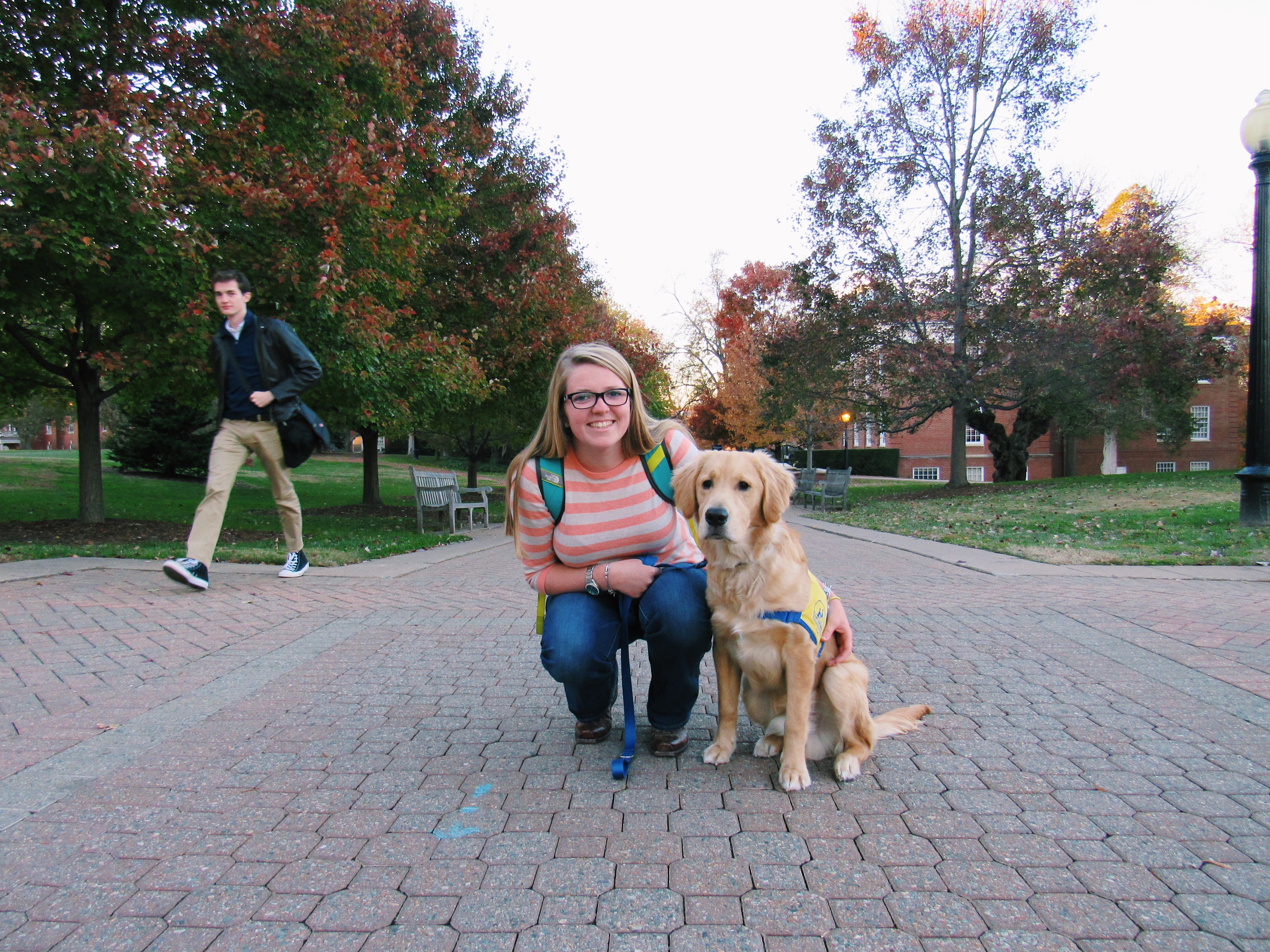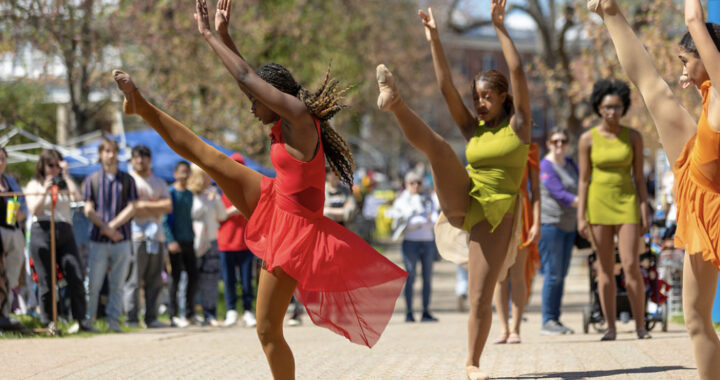Dogs and trainers bond while making a difference
3 min read
Kyrstiane Urbaniak | The Blue & Gray Press
By PAIGE WALTON
Staff Writer
UMW’s Canine Companions for Independence club (CCI) is part of a national non-profit organization that trains dogs to assist and enhance the quality of life for people with differing disabilities. In addition to raising dogs, the UMW chapter aims to educate the general public about service dogs and increase awareness about the cause.
Approved in May of 2014, the club is still growing and expanding, now only four years old. Currently the club has around 30 members. According to senior psychology major club President, Rachael Wiczalkowski, UMW is the only university with a program like this.
“There was a realization of the need for service dog education and service puppy raisers,” said Wiczalkowski. “Many people don’t know how to interact with a service dog or when it is okay to interact with one… With more and more people receiving service dogs this is an important thing to be educating the community about.”
Wiczalkowski has been in the club for three and a half years, she says she joined the club because she really missed her dogs back home.

While there are currently two dogs being raised by individuals, other members of the club contribute to the cause by helping plan events based around education and fundraising.
Junior psychology major, Mary Meghan Rice is currently raising a CCI dog named Rotary. Rice details the difficulties that come with raising a service dog, including house breaking early on so that the dog can go into stores and other public spaces. One of the biggest hardships that arises is the frequent misconceptions that people have of service dogs in general.
“Many people do not know how to properly approach or be around service dogs,” said Rice. “Socializing has been the hardest part of raising Rotary so far… I have had to find a happy medium of allowing Rotary to be pet but also making sure that he knows that he is working when his vest and gentle leader are on.”
Part of the process of training is having the dog experience all kinds of situations, so that when the dog is eventually paired with someone in the future, they are equipped to handle anything. That being said, service dog trainers are not always able to bring their dog everywhere. Being in the education program with practicum teaching means Rice is not able to take Rotary into school with her three times a week.

“During that time, I am not allowed to take Rotary so he stays in his crate but he goes with me almost everywhere else,” said Rice. “I have to think of what is in his best interest and take him to places that will not overwhelm him while also making sure that he is introduced to many different types of environments.”
By the end of their time with trainers in the club (about 18 months), CCI dogs know 30 commands, ranging from the basics such as sit and stay, to the more complex such as hurry when dealing with going to the bathroom. After puppy training, the UMW student says goodbye to their dog and the dog heads to advanced training with professionals through CCI for about four to five months, where they learn additional skills that will equip them to best serve their person in the future.
Senior psychology major and Vice President, Greg Genuardi, previously raised a dog with CCI and said of the experience that, “you question your ability to successfully train them a lot, and there’s always the nagging thought of ‘what if I’m messing everything up and Jax doesn’t get placed with someone.’”
According to Genuardi, Jax now lives in Richmond, VA and works at a foster care facility called Extra Special Parents. Jax helps out with the children at the facility and also goes into courthouses with the children when they have any legal processes they have to go through.
“When I turned Jax in, I had a feeling he would be a Facility Dog,” said Genuardi.
Reflecting on the experience as a whole, Genuardi said, “Being able to see him at work and changing people’s lives is something I dreamed of and now it’s happening… Of course I miss him, but he is changing other people’s lives just like he changed mine.”











